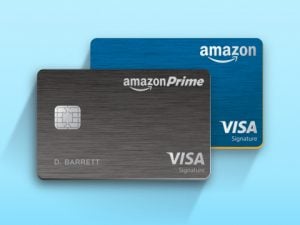As the banking industry struggles to keep its competitive advantage, experts mull the possibility of Google, Facebook, Apple, and Amazon snatching from banks the exclusivity to provide financial services.
Internet companies applying better technology and data could offer higher quality services than banks, provided they use Bitcoin as the primary currency. Otherwise, the vices and complications inherent in fiat currencies would not only persist, but they would also be exacerbated.
The Banking Industry is Shaky

The flow of recent news shows that the banking industry is under stress. Big banks are cutting jobs. According to Reuters, “HSBC has begun cutting around 100 senior jobs in its investment banking division worldwide this week, according to sources with direct knowledge of the matter.”
In parallel, HSBC and other banks are nervously developing strategies to survive Brexit’s impact.
Taxpayers continue to bailout traditional banks. According to Bloomberg, “Italy’s banks are struggling under the weight of a 360 billion-euro mountain of bad loans, a plight that has eroded profitability and undermined investor confidence. The nationalization of Monte Paschi could be followed by rescues for lenders including Veneto Banca SpA and Banca Popolare di Vicenza as part of the government package.”
Social Media Providing Financial Services

Bad loans, poor profits, and Brexit are not the only problems facing the obsolete banking industry.
Banks need to innovate to become radically nimbler, simpler, and cheaper if they wish to sustain a competitive advantage vis-à-vis potential competitors from the social media.
For example, asking a traditional bank for a working capital loan is a complex and time-consuming process. Moreover, banks are expensive and they might not lend you the amount of money your business requires.
“Interest rates for small-business loans from traditional banks can be quite high, and the amount of bank funding for which a business qualifies is often not sufficient to completely meet its needs,” according to American expatriate entrepreneur, marketing analyst and Web developer, John DeMerceau. “The high-interest rate for the funding a business does receive often stunts its expansion because the business needs to not only service the loan but also deal with additional funding to cover funds not provided by the bank.”
Social Media Giants Could Become Banks

Retailers and small entrepreneurs are now finding support, not from traditional banks but from unconventional sources, which operate in the realm of the Internet.
Amazon provides loans to small businesses. Indeed, in 2016, “Sellers on Amazon worldwide used capital from Amazon Lending loans to grow sales by an estimated $4 billion. The Amazon Lending program offers business loans to invited sellers on Amazon to help them grow their businesses,” says an Amazon press release.
Amazon has long been providing credit card services and now it is stepping up its efforts to increase the number of Amazon credit card users. Most recently, in January 2017, Amazon announced the introduction of the New Prime Rewards Visa card, offering several benefits, such as 5% back on all amazon.com purchases, 2% back at restaurants, gas stations, and drugstores, and 1% back on all other purchases. Moreover, this card does not charge annual fees.
Google through its venture capital arm, GV, offers startups “world-class engineers, designers, physicians, scientists, marketers, and investors who work together to provide these startups exceptional support on the road to success.”
In October 2016, Facebook was granted a license to execute payment services by the Central Bank of Ireland.
The possibility of social media organizations offering financial services functions that have been traditionally offered by outmoded banks and financial institutions recently attracted the attention of the social media giant Linkedin.
Walden Siew, Linkedin Senior News Editor, asked “Will Google, Amazon, and Facebook become banks?” To which, Siew’s readers, Landa Grembi replied, “Google, Amazon, and Facebook acting as banks is not news anymore.” And Tarun Sukhani affirms “They already are. They own all our information!”
The Currency of the Internet is Bitcoin

Using traditional business processes and fiat money, even if they are supported by the latest technology, will not really improve things for customers. Indeed, using the three-thousand-year-old fiat monetary system is incompatible with the democratic, borderless, digital, and fast-moving new economy.
On the other hand, Bitcoin has much to offer to an Internet of Things financial system: transparency, decentralization, neutrality, and security. Bitcoin also provides a degree of anonymity, no charge-backs, and low transaction costs.
Thus, as social media and Internet companies continue to expand their financial services, they will also continue to threaten traditional banks. By providing real-time, borderless, frictionless services enabled by Bitcoin and its blockchain technology, social media and Internet companies can ultimately ensure their dominance over banks.







